El Salvador - Community-based programme for prevention of dental caries among children
El Salvador - Community-based programme for prevention of dental caries among children
Introduction
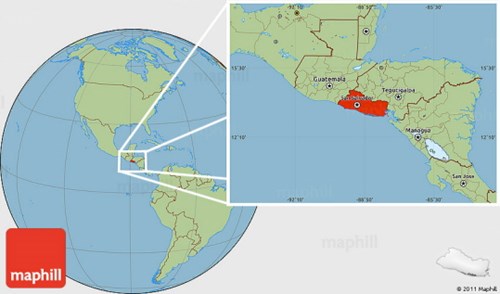
Since 1986, in the Santa Ana region of El Salvador, the Salvadoran Association for Rural Health (ASAPROSAR), a non-governmental non-profit organisation, has operated a rural community health worker (promotora) programme to promote maternal-child health and nutrition through home visits and preschools. In 2004, a community child health assessment conducted by Dr. Karen Sokal-Gutierrez and Dr. Veronica Jordan from the University of California, Berkeley found a high prevalence of baby bottle use, consumption of sugar-sweetened beverages and snacks, early childhood tooth decay and mouth pain. To address these nutrition and oral health problems, ASAPROSAR initiated a collaboration with the Salvadoran Ministry of Health and the University of California, Berkeley to incorporate oral health education and prevention of early childhood caries into their maternal-child health and nutrition program
Background
Early Childhood Caries (ECC), tooth decay in children under age 6, is the most common chronic disease of childhood worldwide, and resources for dental care are often limited. Most global epidemiological studies on caries have focused on school-aged children, and few studies have examined ECC in children from birth to 6 years of age, the age group in which prevention can be most effective. Good nutrition and oral health care--at home and school--can prevent tooth decay and complications such as mouth pain and abscesses that can adversely affect children’s quality of life and interfere with eating, sleeping, and performance in school. Consequently, there is tremendous need to implement public health interventions to prevent dental caries in preschool-age populations in developing countries. Such interventions must be accessible, affordable, culturally sensitive and effective.

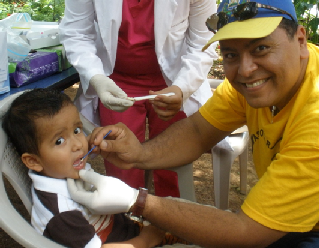
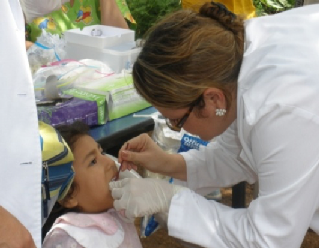
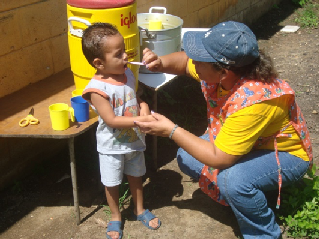
Programme Outline
The oral health intervention programme consisted of:
1) oral health and nutrition education
2) distribution of dental care materials
3) fluoride varnish application.
Oral health education
Annually, community health workers received training on topics that included limiting baby bottle use and unhealthy snacks, the importance of maintaining oral health, proper toothbrushing techniques, and when to seek dental care.
During home visits and in preschools, the health workers provided education on oral health and nutrition for children and families. Toothbrushing was also incorporated into the preschool schedule.
Distribution of dental care materials
Three times a year, free toothbrushes and fluoridated toothpaste were given to the children, parents and family members by the health promotors.
Children were provided a toothbrush to use at home and another to use at school; and each classroom was given a toothbrush holder to store children’s brushes.
Fluoride varnish application
Three times a year, fluoride varnish was applied to children’s teeth in conjunction with the Ministry of Health dentists.
Data Collection
Annually from 2006 to 2010, data were collected by interviews of mothers regarding their children’s nutrition and oral health, and dental exams of the children.
Data Analysis
The team at the University of Michigan analyzed the data.
Achievements
A total of 886 children and their families received the intervention from 2006 to 2010.
At baseline, the prevalence of caries was 10% in the 1-year-old children, increasing to 100% in the 6-year-old children. Following the intervention programme, the caries prevalence in the 3-6 year olds showed a statistically significant reduction, from 72% (2006) to 61% (2010).
At baseline, the prevalence of mouth pain ranged from 25% in 3-year-old children to 60% in 6-year-old children. After the programme, the prevalence of mouth pain in the 3-6 year olds was reduced from 58% (2006) to 39% (2010).
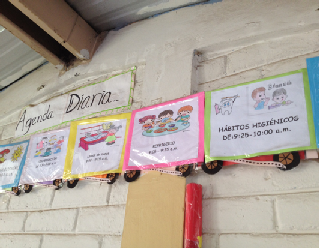
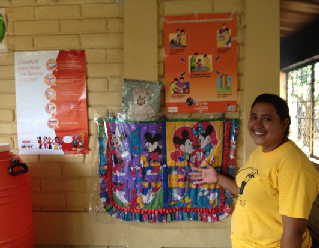
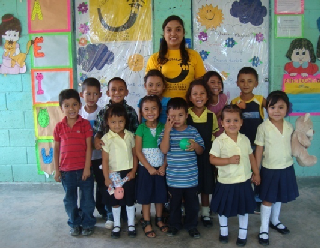
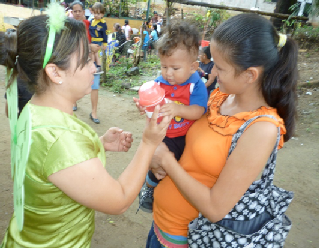
Conclusion
This community-based preventive programme brought about improvements in oral health and quality of life in the children in rural communities in El Salvador. The success of this programme is further reflected in the continuation of the intervention programme by the local communities and government.
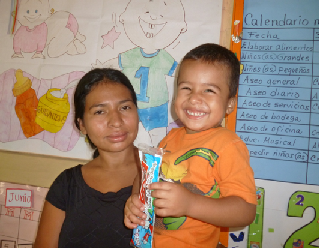
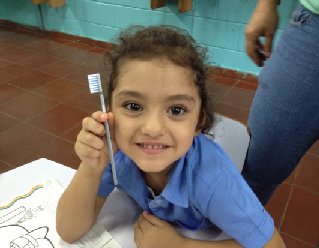
References
Dabiri D, Fontana M, Kapila Y, Eckert G, Sokal-Gutierrez K. Community-based assessment and intervention for early childhood caries in rural El Salvador. Int Dent J. 2016;66:221-228.
